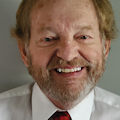The dental service organization (DSO) model challenges traditional solo practices. As a response, small groups, which offer the advantages of scale necessary to compete while still retaining autonomy, warrant consideration. As a dentist who founded a small group and practiced in it for 30 years, my perceptions might be of merit.
An established doctor may wish to form a group to get help with an excessive patient load, share overhead, or build a relationship with someone who may someday buy all or part of the practice. A dentist may consider joining a group because of limited credit (compounded by debt), a desire to have access to a dentist with more clinical expertise, or a lack of interest in the business of dentistry, a conceit that solo practitioners cannot afford.
After 11 years of working alone, I hired an associate. We labored in what had been my office. Why did I hire an associate? With 5,000 active patients, we often saw 10 or more emergencies a day. Being booked two months in advance was a nightmare, as that’s asking for a lot of provisionals, and one can’t take six months to fabricate dentures.
Despite maximizing productive abilities with five fully equipped operatories and an excellent and experienced staff of seven, I could not keep up. My choices were to get help or turn away patients. The reputation of closing a practice is hard to dispel, so with appropriate fear and trembling, I chose the former.
I vividly recall the moment when my intent to add an associate crystalized. I’d gone to Colorado with family for a week of education and recreation. For five days, I attended classes before and after skiing, then I drove 12 hours home on a Sunday. Staggering into my office Monday morning, I was greeted by a full schedule and 40 emergency patients, most of them fuming because I hadn’t been there when they needed me.
I am committed to a multidentist concept and would never again practice dentistry solo. Yet I’m aware of the problems inherent in groups, and in as even-handed a manner as possible, I’ll share my perceptions of their advantages and disadvantages. Since I chose group practice, I’ll begin with the advantages.
The advantages
More new patients
We were forced by space limitations to stagger our hours, including adding evenings and Saturdays. This enhanced convenience almost immediately and led to a 50% increase in new patients. Families in which both spouses work and those reluctant to withdraw their children from school found the new hours extremely attractive. The presence of other doctors and additional staff who live in the community also led to heightened new-patient flow, but that took several months to occur.
Lower overhead and higher profit
Almost no changes to our physical plant were required, so expenses such as heating and cooling, phones, business insurance (not malpractice), and rent changed little. Our overhead percentage dropped from 65% to 58%, while production increased 54%. Changes were so numerous that it’s hard to determine a single figure for fixed overhead savings, but rent, utilities, and some insurance were cut into thirds.
Many other expenses were reduced on a percentage, but not a total dollar basis. Two additional staff were added, but production per team member increased by 15%. Dentistry is what I do for a living, and I study my accountant’s profit and loss statement and our internally generated monitors carefully, but I’m a “net per hour” guy. To me, the most significant positive of the group concept is that higher production combined with lower overhead yields more net dollars.
Increased cash flow
Adding new equipment and services becomes much less burdensome as more revenue accrues. Marketing and continuing education expenses are more affordable, which increases profitability. In a solo venue, some out-of-pocket costs are difficult to justify.
Mini specialization
Patients don’t like referrals to unfamiliar offices. (Better the devil you know.) My general dentistry residency in the US Army trained me exceedingly well in a broad array of care, and I often performed specialty procedures to accommodate people. But infrequent repetition made them increasingly difficult, stressful, and less profitable.
By luck and design, the three of us in the practice now cover all specialty areas. Each doctor can focus on procedures he enjoys most, thus creating a better service because iteration enhances performance. Almost all previously referred care stays in-office, and some of it is very lucrative.
Peer review
We all fall short in our “practice” of dentistry, yet it’s uncomfortable when one of my caring, committed fellow doctors points out a shortcoming to me, or I to him. But we do it because of our commitment to patient well-being, and because it aids professional growth. Perhaps it shouldn’t matter but being aware that my friends and fellow dentists will see my crown margins and endo fills increases my desire to excel.
Mutual support
Nobody knows the troubles of dentists like other dentists. Staff, spouse, or children may be concerned and sympathetic, but no one else knows. It’s comforting to have a friend who understands that times and circumstances exist where even giving it your best is not enough.
On the negative side, I fear two matters may be problems not to be solved, but endured.
The disadvantages
Loss of shared vision
The larger the group, the more challenging it is to maintain a common purpose. Our office spent 11 painstaking months drafting the following statement: “Our purpose: our office exists to serve those we have dedicated ourselves to, our patients. We will create an environment of honesty and professionalism, where everyone will feel comfortable, cared for, and welcome. All patients will be aware of the quality of care received, and of our sincere concern for them as individuals. We further pledge to be positive, supportive team members, and to create an environment where we can have fun while encouraging and supporting personal and professional growth.”
A plaque emboldened with our purpose hangs in every operatory. We read it at the beginning of each staff meeting, and for years this document defined our heart. It still reflects what dentistry means to me, but I’m not sure everyone believes it like I do. Of all the problems, this is by far my most troubling. Forfeiting a sense of teamwork bestowed by common values has damaged our office in numerous ways.
Reduced control
It was difficult for me (and I’m sure for my associates) not to have all of the staff and patients be mine. Every dentist in a group setting must be willing to relinquish some control.
Minor frustrations I feel we can modify or eliminate include:
Staff conflict
As staff size increases, discord rises. Cliques develop and, sadly, people become loyal to “their” doctor. (As our purpose demonstrates, allegiance should be to patients.) We work consciously and consistently on verbal skills, devoting 30 minutes of each staff meeting to a communication exercise, but tensions continue. I mourn our lost feng shui.
More frequent mistakes
Job descriptions become less transparent due to additional people and expanded hours. Communication becomes muddled, so lab cases are not mailed promptly, post-op calls are not made, or critical supplies are not ordered.
Equipment breakdowns
Due to expanded use, we need more repairs. Not having equipment available, as well as the expense, is frustrating.
These are my most significant factors, but concerns will vary depending on each dentist’s personality. Do you enjoy working with others? Can you submerge your ego (it won’t disappear, but it can be mastered) for the good of the team?
The financial advantages are prodigious, the friendships meaningful, and the pressure of dentistry reduced for reasons we’ve discussed. But considerable introspection is needed to determine if the benefits outweigh the detriments. I hope this information has been instructive and beneficial. I wish you Godspeed.
JOHN A. WILDE, DDS, practiced in Keokuk, Iowa, and is now blissfully retired. He’s written six dental books, and had more than 200 articles published in a wide variety of journals. He may be reached at (309) 333-2865 or [email protected].
About the Author

John A. Wilde, DDS
After eight years of higher education, paying 100% of the cost himself, John A. Wilde, DDS, spent two years in the Army Dental Corps before beginning a practice from scratch in Keokuk, Iowa. By age 30, he was debt-free, owning outright his new country home and the practice he had designed and built. By 40, he was financially able to retire. At age 53, he fully retired. Dr. Wilde has authored six books and more than 220 articles, and may be reached at (309) 333-2865 or [email protected].
